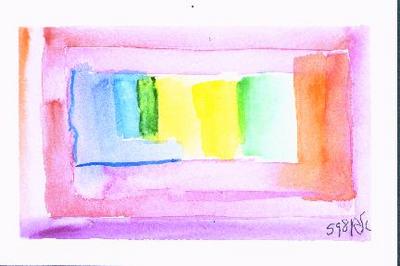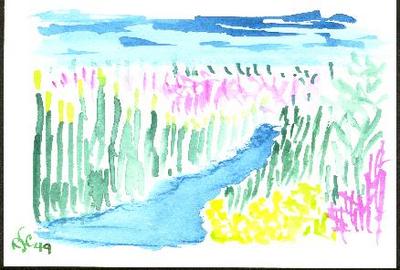
by Elaine Cavanaugh
FOR MICHAEL ONDAATJE
Apples bleed–
yellowed skins remembered
by hornets,
hungry in the hour of their deaths.
In a theater of small things,
In the arc of our breathing,
what would we speak of anyway?
Tires grate against gravel. Rain-washed
bottle glass reflects. In dusk's light,
love arrives and dies in all disguises.
What would we speak of anyway?
Beside a painted handle, in the hush
of our breaths, blue granite-ware
overflows. Poet steps in, washes
her clay-caked feet.
What would we speak of anyway?
-appeared in Poems Inspired by Other Poems (2004) Shoshauna Shy, Editor










